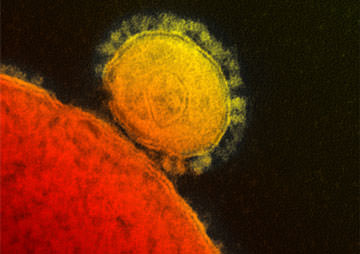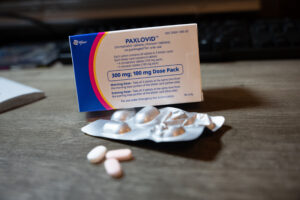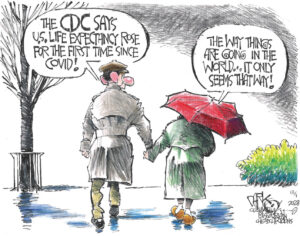Doctors Urge Calm as U.S. Patient Tests Positive for Deadly MERS Virus
The Centers for Disease Control and Prevention announced the first U.S. case of MERS, a deadly virus for which there is no treatment. However, the risk to the public is low, according to the assistant surgeon general. National Institutes of Health (NIH)
National Institutes of Health (NIH)
National Institutes of Health (NIH)
The Centers for Disease Control and Prevention announced the first U.S. case of MERS, a deadly virus for which there is no treatment. However, the risk to the public is low, according to the assistant surgeon general.
“It is understandable that some may be concerned about this situation, but this first U.S. case of MERS-CoV infection represents a very low risk to the general public,” said Dr. Anne Schuchat, who serves as both assistant surgeon general and also director of the CDC’s National Center for Immunizations and Respiratory Diseases.
Middle East Respiratory Syndrome Coronavirus was first detected in Saudi Arabia in 2012. Like SARS, which broke out in Asia in 2002 and 2003, it is a severe acute respiratory illness that only recently made the jump to humans. The lethality of the MERS virus is difficult to pin down. The CDC alone reports varying numbers, from roughly one-quarter to one-half of those infected not surviving.
The man who brought it to the United States had a hell of a travel itinerary, showing the speed at which modern viruses can traverse the globe, but also the extraordinary measures required. According to Reuters, “The male patient traveled via a British Airways flight on April 24 from Riyadh to London, where he changed flights at Heathrow airport to fly to the United States. He landed in Chicago and took a bus to an undisclosed city in Indiana.”
Here is some more information from the CDC:
Q: What are the symptoms of MERS?
A: Most people who got infected with MERS-CoV developed severe acute respiratory illness with symptoms of fever, cough, and shortness of breath. About half of them died. Some people were reported as having a mild respiratory illness.
Q: Does MERS-CoV spread from person to person?
A: MERS-CoV has been shown to spread between people who are in close contact.[1] Transmission from infected patients to healthcare personnel has also been observed. Clusters of cases in several countries are being investigated.
Q: What is the source of MERS-CoV?
A: We don’t know for certain where the virus came from. However, it likely came from an animal source. In addition to humans, MERS-CoV has been found in camels in Qatar, Egypt and Saudi Arabia, and a bat in Saudi Arabia. Camels in a few other countries have also tested positive for antibodies to MERS-CoV, indicating they were previously infected with MERS-CoV or a closely related virus. However, we don’t know whether camels are the source of the virus. More information is needed to identify the possible role that camels, bats, and other animals may play in the transmission of MERS-CoV.
Q: Is CDC concerned?
A: Yes, CDC is concerned about MERS-CoV . Most people who have been confirmed to have MERS-CoV infection developed severe acute respiratory illness. They had fever, cough, and shortness of breath. About 30% of these people died. Also, in other countries, the virus has spread from person to person through close contact, such as caring for or living with an infected person. CDC recognizes the potential for the virus to spread further and cause more cases globally, including in the United States. Q: Has anyone in the United States gotten infected?
A: Yes, on May 2, 2014, the first confirmed case of MERS-CoV was reported in a traveler to the United States. This is the only confirmed case in the United States.
Q: What is CDC doing about the first case of MERS in the United States?
A: CDC works 24/7 to protect people’s health. It is the job of CDC to be concerned and move quickly whenever there is a potential public health problem. CDC is working very quickly to investigate this first U.S. case of MERS and ensure that Americans are safe. We expect to learn much more in the coming hours and days. We will share updated information through this website.
CDC is also closely monitoring the MERS situation globally. We are working with WHO and other partners to better understand the virus, how it spreads, the source, and risks to the public’s health. CDC is engaged in the following ways:
CDC developed molecular diagnostics that will allow scientists to accurately identify MERS cases. CDC also developed assays to detect MERS-CoV antibodies. These lab tests will help scientists tell whether a person is, or has been, infected with MERS-CoV. CDC will evaluate genetic sequences as they are available, which will help scientists further describe the characteristics of MERS-CoV.
As part of routine public health preparedness in the United States, CDC has provided MERS-CoV testing kits to state health departments so they can test for patients under investigation for MERS-CoV infection. CDC also developed Interim Guidance for Health Professionals. This includes case definitions, and guidance for evaluating patients, reporting cases to CDC, infection control in healthcare settings, preparedness, caring for MERS patients at home, and handling clinical specimens.
CDC is offering recommendations to travelers when needed. CDC is also helping to assess ill travelers returning from affected areas.
In addition, CDC has participated in several international public health investigations of MERS. CDC continues to provide advice and laboratory diagnostic support to countries in the Arabian Peninsula and surrounding region.
It’s easy to be frightened of new viruses, but the hysteria is often unwarranted, as proved to be the case with SARS. Having gotten an up-close-and-personal look at that epidemic, this blogger can assure you that the anxiety did not match the impact. You are much likelier to die from heart disease or a traffic accident than an obscure Middle Eastern disease, even if it made it all the way to Indiana.
That said, knowledge is power. Keep calm and wash your hands.
— Posted by Peter Z. Scheer
Your support matters…Independent journalism is under threat and overshadowed by heavily funded mainstream media.
You can help level the playing field. Become a member.
Your tax-deductible contribution keeps us digging beneath the headlines to give you thought-provoking, investigative reporting and analysis that unearths what's really happening- without compromise.
Give today to support our courageous, independent journalists.






You need to be a supporter to comment.
There are currently no responses to this article.
Be the first to respond.